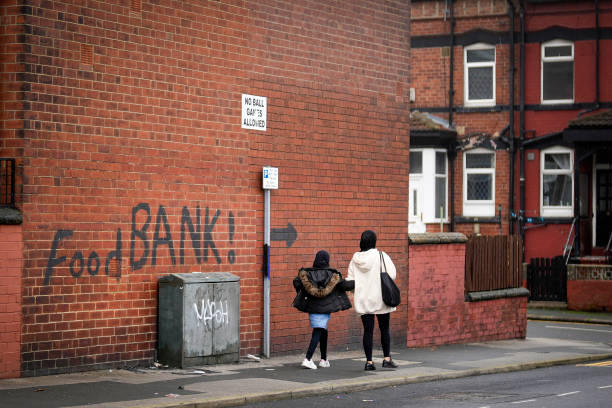A recent report by the Social Metrics Commission (SMC) reveals alarming statistics about poverty in the UK, with over one in three children and a quarter of adults now living in deprivation.
This marks the highest poverty rate since comparable records began in 2000, driven largely by the ongoing cost of living crisis.
Since 2019, an additional 2 million people have been pushed into severe hardship, highlighting the economic strain faced by millions across the country.
The study, which uses a broader measure of poverty that accounts for inescapable costs such as childcare and disability expenses, paints a stark picture.
A total of 16 million people, or 24% of the UK population, now live in poverty.
Children, in particular, have been hit hardest, with 5.2 million, or 36% of all children, now in deprivation.
This represents a rise of 260,000 children since the start of the Covid pandemic.
Of these children, over half live in families with three or more children, further illustrating the disproportionate impact of poverty on larger households.
This increase in child poverty may reignite debates about government policies, including the controversial two-child benefit cap introduced by former Chancellor George Osborne.
Labour has been pressured to scrap the cap, but current Prime Minister Keir Starmer has resisted, citing the policy’s cost.
The SMC report’s new approach to measuring poverty is more inclusive than previous definitions, offering a clearer understanding of the struggles families face.

It considers factors such as rent, mortgages, and the liquid assets that families can access in times of crisis.
The report’s findings coincide with the largest drop in living standards since the mid-1950s, exacerbated by global events like the COVID-19 pandemic and the war in Ukraine.
The report also highlights a worrying rise in poverty among disabled people, who are now more likely to experience severe hardship.
Notably, over half of those in severe hardship live in families with a disabled member.
Additionally, nearly one in ten people in poverty are in full-time work, showing that even steady employment is no guarantee of escaping poverty in today’s economic climate.
Helen Barnard of the Trussell Trust, a charity that supports food banks, emphasized the growing need for emergency food assistance, with over 3 million parcels distributed in the last year alone.
Barnard calls for a comprehensive government strategy to end food insecurity, which she argues must include increased investment in social security.
The UK government has taken some steps to address the issue, such as extending the household support fund and increasing the national living wage, but the scale of the problem suggests more needs to be done to lift families out of poverty and ensure a better future for children.

